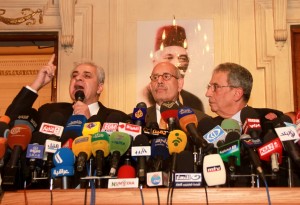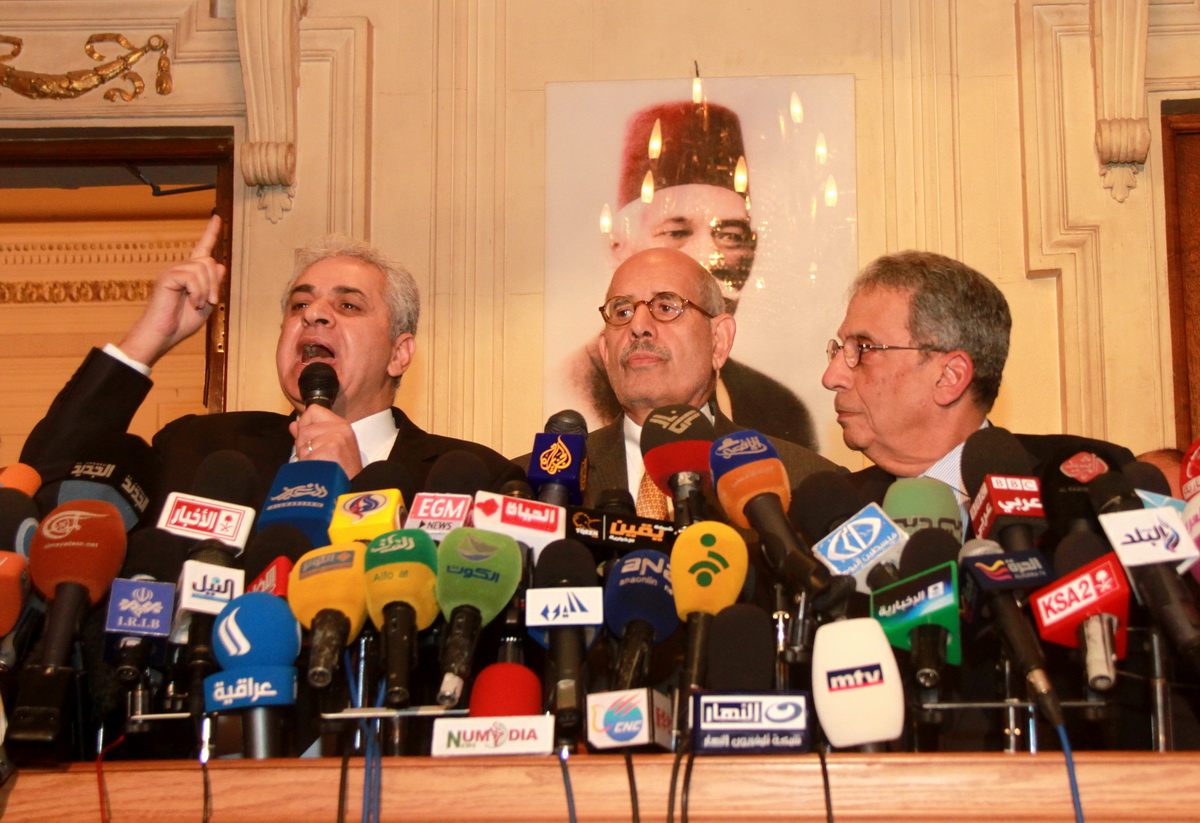
(DNE File Photo)
The National Salvation Front (NSF) Youth Movement held a protest on Saturday against Giza Governor Aly Abdel Rahman, claiming that he was appointed because he is a member of the Muslim Brotherhood.
“He was appointed to increase the influence of the Brotherhood over the second largest governorate in Egypt” said Hussam Fouda, the media officer of the NSF Youth Movement and secretary of the Free Egyptians Youth movement.
Fouda added that he suspected the appointment came before the parliamentary elections to ensure Brotherhood control over elections.
“We demand the president declares the criteria for selecting ministers and governors,” he said, adding that Giza governorate employees supported the protest.
“Even the employees were surprised by the appointment, they said he isn’t known to the people of Giza and has no experience with their problems,” Fouda said.
NSF Youth distributed flyers in Giza which laid out the governor’s duties, explained why they are protesting against the current governor, and set out their proposed criteria for the selection of a new governor.
Fouda added that this was the second protest against Abdel Rahman. The first was held last Wednesday.
“We intend to organise one or two protests every week against the increasing Brotherhood influence over ministries and governorates,” he said.
The NSF Youth will also hold a protest at the High Court Building demanding the resignation of Prosecutor General Tala’at Abdallah on Monday.
“If he had any respect for the judiciary and for himself he would resign; we will march to the Shura Council from the High Court Building to reject the Judicial Authority laws they are drafting,” Fouda said.
The NSF Youth, along with many other parties and movements, are also preparing for massive protests on Sunday. The protests will march from several universities to the cabinet building, demanding the removal of the Minister of Higher Education.
“During the era of this minister, the worst university bylaws have been produced, university ballot boxes have been smashed, thugs entered campuses, and violence broke out between students,” Fouda said.
He added that they demanded to be able to conduct political activities on university campuses, which is currently forbidden by law.
“Universities are the schools of political life; the student movements in the eighties were the ones who produced the leaders of the NSF and other political parties,” he said.

